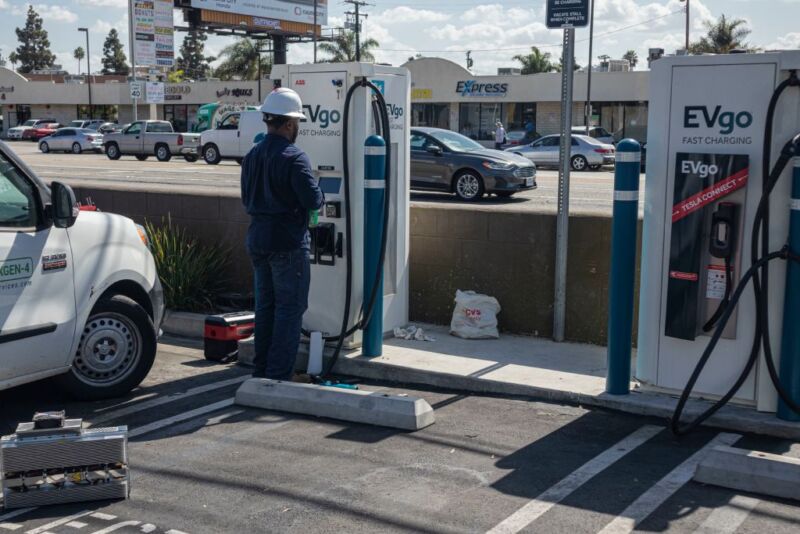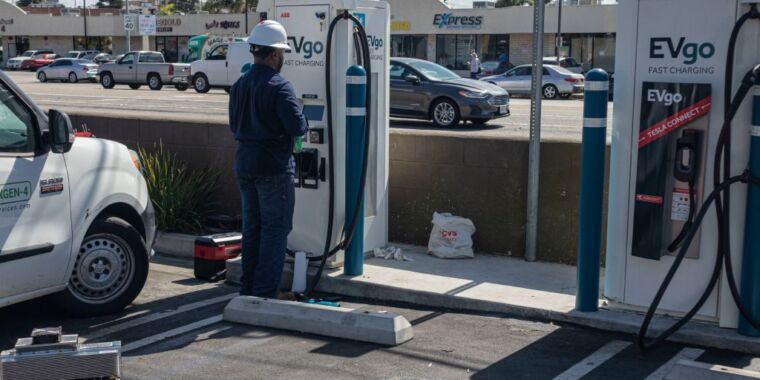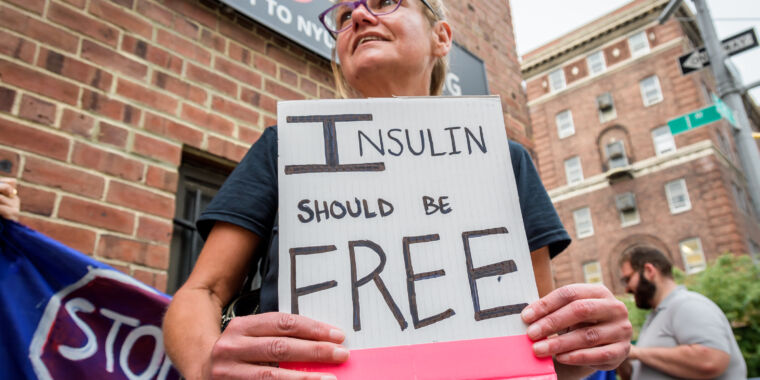
The only statewide climate measure on California’s ballot Tuesday failed, even though it would have raised billions to help meet the state’s ambitious greenhouse gas emissions reduction targets by subsidizing electric vehicles and charging infrastructure, among other things. Its downfall resulted largely from the high-profile opposition of Gov. Gavin Newsom, who has arguably worked harder than any other governor to position himself as a climate leader.
Official ballot materials said Proposition 30 would provide funding for programs to reduce air pollution and prevent wildfires by increasing tax on personal income over $2 million. The roughly 35,000 Californians who make more than $2 million would have been required to pay an additional 1.75 percent on income above that amount.
The tax on these high-income earners—0.08 percent of Californians—would raise about $3.5 billion to $5 billion annually, according to the state’s Legislative Analyst’s Office.
A statewide poll conducted in September by the nonpartisan Public Policy Institute of California, or PPIC, found that 55 percent of likely voters would vote yes on Prop 30, 40 percent would vote no, and 5 percent weren’t sure.
Then ads featuring Newsom calling Prop 30 a “trojan horse” started hitting TV and computer screens. “Fellow Californians, I need to warn you about Proposition 30, one company’s cynical scheme to grab a huge taxpayer-funded subsidy,” Newsom said in one TV spot. The words “Warning” and “Don’t Be Fooled” appeared in big letters behind the governor.
“Prop 30 is being advertised as a climate initiative but in reality it was devised by a single corporation to funnel state income taxes to benefit their company,” he said.
The “single corporation,” excerpted text behind Newsom made clear, is Lyft, the measure’s top funder. Ride-sharing companies like Lyft must electrify 90 percent of the miles driven by their fleets by 2030 as part of the state’s climate targets.
Newsom’s campaign against Prop 30 worked. A month after his ad blitz, support for the measure dropped to 41 percent, with 52 percent opposed and 7 percent undecided, a statewide PPIC poll found just one month after finding majority support.
The main thing that happened to boost the no side between the two polls was a governor with favorable approval ratings coming out against the proposition, said PPIC president and CEO Mark Baldassare. And most of what the no side had to say came from the governor saying, “I’m against this, we’ve already taken care of this, don’t be fooled.”
Once people hear things like “Don’t be fooled,” even for things they support, it’s relatively easy for them to vote no, Baldassare said.
It doesn’t matter if they’re in favor of electric vehicle funding and taxing millionaires, he added. “If there’s any sense that there’s either confusion or uncertainty on the voters’ part for initiatives, it’s really easy for people to say no. That’s why historically only about a third of initiatives pass.”
Eighty percent of Democrats were supporting Prop 30 in the first PPIC poll before the governor came out against it, Baldassare said. “I think that just raised doubts for enough people, and gave them reason to pause and think, ‘Why do I want to support this?’”
Leading the opposition
Newsom tops the list of opposition funders, with his ballot committee and campaign donating more than $1.8 million to defeat the measure, according to state campaign finance filings.
Lyft donated the lion’s share of the $50 million supporting the proposition, along with members of a clean air coalition led by California Environmental Voters with support from the state Democratic Party.
Despite the opposition’s rhetoric, nothing in the language of the proposition steers money toward Lyft, said Bill Magavern, policy director for the Coalition for Clean Air, which backed Prop 30. “That is a hoax that was perpetrated by the opposition. There was nothing in there to favor a special interest.”
Someone who drives for Lyft right now is eligible for a rebate to buy an EV like anyone else, said Magavern. “The measure would not have changed that.”
Plus, the money for vehicle rebates would have gone to the California Air Resources Board, or CARB, which regulates greenhouse gases, and the agency would then have discretion over how to spend it, Magavern said.
What’s more, supporters say, it wasn’t Lyft but environmental groups that came up with the idea for the proposition, which they did long before the ride-hailing company got involved.
Several environmental groups began serious discussions a few years ago about putting a measure on the ballot, Magavern said, “to really do the job of cleaning up transportation in California.”
Transportation accounts for about half of the state’s greenhouse gas emissions, almost 80 percent of toxic nitrogen oxide pollution, and 90 percent of particulate pollution from diesel engines, according to the state energy commission. Nitrogen oxide and particulate matter cause serious health problems by damaging the lungs and heart.








